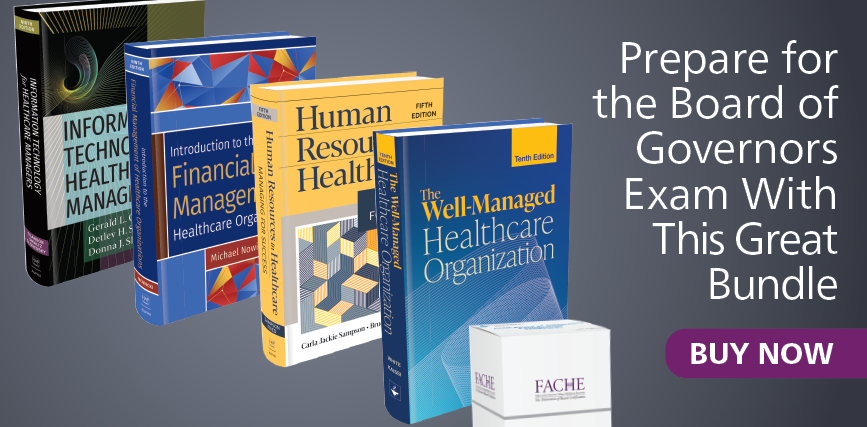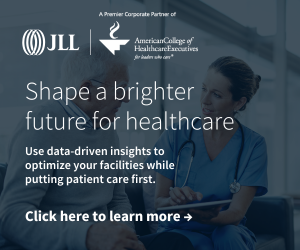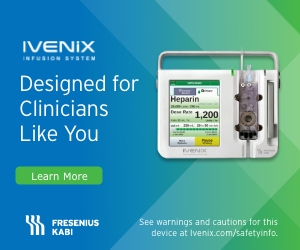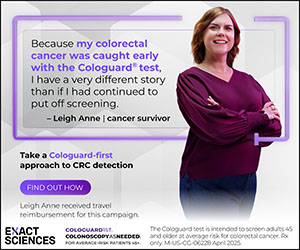
- A Call for a Global Culture of Safety
- ACHE Requests Your Input on the 2026–2028 Strategic Plan
- Transformational Leadership Is an Interactive Process
- Maximize Your Potential
- Call for Proposals: Management Innovations Poster Session
A Call for a Global Culture of Safety
Years of innovation have proven that patient care is improving. Adverse events in hospitals have declined over the last decade, and safety metrics have surpassed pre-pandemic levels. But there is still more to do to ensure that every patient, in every setting, receives the safest care possible.
Initiatives like the Patient Safety Structural Measure in the U.S. and the Global Patient Safety Action Plan 2021–2030 have laid important groundwork, but policies alone cannot achieve lasting change. Building a sustainable culture of safety requires environments where staff feel safe to speak up, where transparency and accountability are valued and where learning is prioritized over blame.
The key to advancing this culture is connected insights. When data and experiences are shared across organizations and geographies, trends become easier to identify, risks can be addressed sooner and best practices can be adapted quickly. This collective intelligence supports better decisions and creates a stronger safety net for patients and staff.
The impact is significant, too. A culture of safety powered by shared knowledge can help reduce harm, improve staff well-being and make organizations more resilient. For healthcare leaders, the message is clear: openness and collaboration move care forward.
On World Patient Safety Day, Sept. 17, we encourage organizations to recommit to sharing knowledge and insights. Together, we can create a truly global safety culture, one that continuously learns, improves and raises the standard of care everywhere.
RLDatix, an ACHE Premier Corporate Partner, provided the content above.
ACHE Requests Your Input on the 2026–2028 Strategic Plan
In 2024, the ACHE Board of Governors engaged in a “deep dive process” with The Chartis Group LLC to create a new Strategic Plan and the 2025–2027 Strategic Plan launched in January 2025. While 2025 marks the first year of a new three-year cycle, the Board annually examines the Strategic Plan with a continuing focus on meeting the evolving needs of our members and the healthcare field.
The 2025–2027 Strategic Plan and Map focuses on ACHE’s work to advance and innovate health while driving toward safety and health equity, grow and strengthen our professional community of leaders while providing value nationally and locally, and expand our reach and impact by helping leaders reach their highest potential. During its June strategy retreat, the Board affirmed the current plan’s direction and relevance and recommends no changes for the 2026–2028 Strategic Plan.
The Board also reviewed ACHE’s vision, mission and values. While they did affirm the relevancy of the vision and mission, the Board believed ACHE’s value of Diversity and Inclusion could evolve to reflect ACHE’s strong commitment while acknowledging the current environment. The Board recommends the value of Community in which ACHE fosters engagement and learning and a community of belonging where each of us and all of us are respected and celebrated.
If you would like to provide feedback on the draft 2026–2028 Strategic Plan, send your thoughts, comments and ideas for improvement to the ACHE Executive Office at strategicplan@ache.org. The deadline for comments is Nov. 7, 2025.
Transformational Leadership Is an Interactive Process
Leadership is complex, demanding techniques and practices adapted to each circumstance and team—and no single method is universally effective. The second edition of Leading Health Organizations: Theory and Practice by Erik L. Carlton, DrPH, FACHE, and James W. Holsinger Jr., MD, provides insight into the attributes of effective leadership and how it can be used in leader-follower relationships with workers, constituents and partners.
Readers will gain a better understanding of how various situations affect leadership within healthcare organizations, including the importance of self-awareness and authenticity; how to develop and apply communication competencies in various situations, including how to cope with a crisis; and strategies for effectively leading collaborative groups.
“Skilled health systems managers recognize that their organization’s most valuable resource is the people they lead,” say Carlton and Holsinger. These leaders understand how to apply their knowledge to navigate complicated issues and provide intellectual stimulation, inspirational motivation and individualized consideration. “The reader is challenged to try out the different leadership models and theories, determine which one is a best fit and utilize it in their day-to-day leadership practice.”
Maximize Your Potential
Wherever you are in your leadership journey, ACHE has a career development program tailored to your needs. These two programs will help you achieve your goals in just eight weeks and are both worth 12 ACHE Virtual Interactive Education credits:
The “Virtual Leadership Development Program,” held Oct. 1–Nov. 19, is designed for mid-careerist healthcare leaders who are preparing for the next step and senior leaders who are looking to fine-tune their skills. In this course, you will increase your self-awareness and enhance your impact through skill and personality assessments, coaching sessions, groups discussions and peer exercises with lectures to enhance leadership capacity. Learn to identify barriers that may be preventing you from taking your career to the next level. Understand how mindfulness and emotional intelligence are core leadership competencies, and gain the awareness and tools to become a more resilient leader.
The “Virtual Career Launch Program,” held Oct. 20–Dec. 8, is geared toward emerging leaders and designed to empower the next generation of healthcare professionals. This program outlines best practices in healthcare leadership, focusing on three core pillars:
- Defining your path.
- Differentiating yourself from your peers.
- Demonstrating growth in your skills.
Find tailored virtual group mentoring sessions and frequent networking opportunities with an array of experienced healthcare leaders.
For questions about these program, contact Zoe Siftar, ACHE program specialist, at (312) 424-9398 or zsiftar@ache.org.
Call for Proposals: Management Innovations Poster Session
Authors are invited to submit an abstract of their posters for consideration for the 41st Annual Management Innovations Poster Session to be held at the 2026 Congress on Healthcare Leadership in Houston, March 2–4. This is a great opportunity for authors to showcase the innovative work happening at their organizations with other healthcare leaders.
Submissions should focus on innovations that demonstrate significant advancements and impactful strategies in care delivery environments, promoting access and improved patient outcomes. These innovations should fall into one of the following four categories: AI and Technology, Rural and Critical Access Hospitals, Safety and Quality, and Workforce and Care Redesign.
Visit Congress Poster Session for the full selection criteria. Abstracts should be submitted by Oct. 31, 2025, using the Start Submission link.



